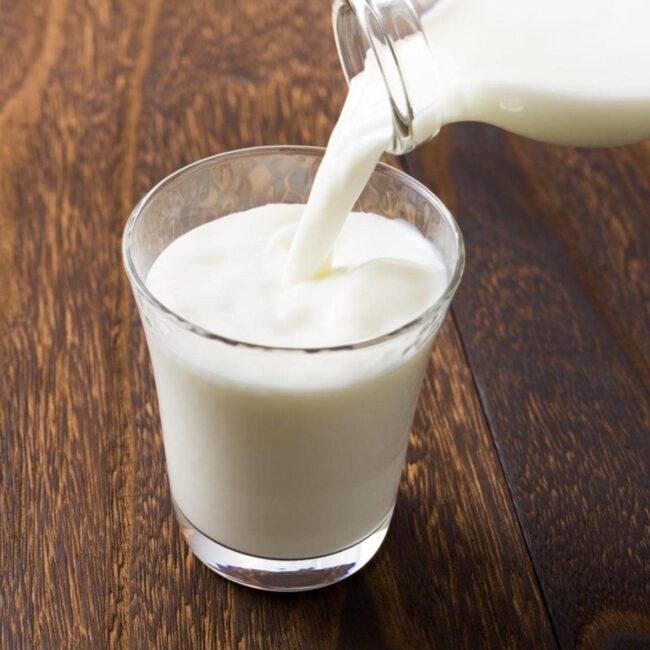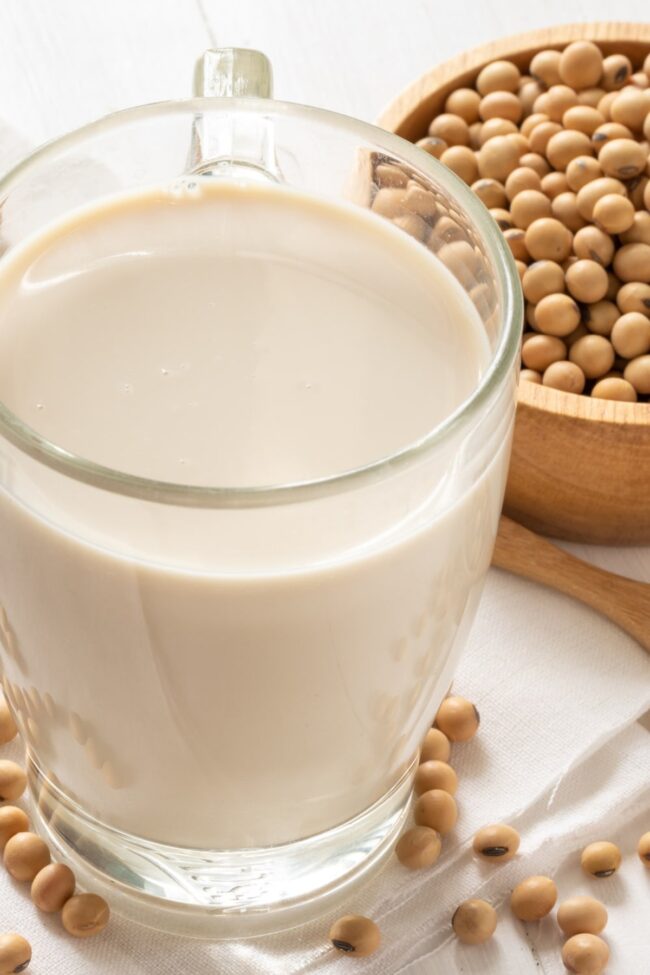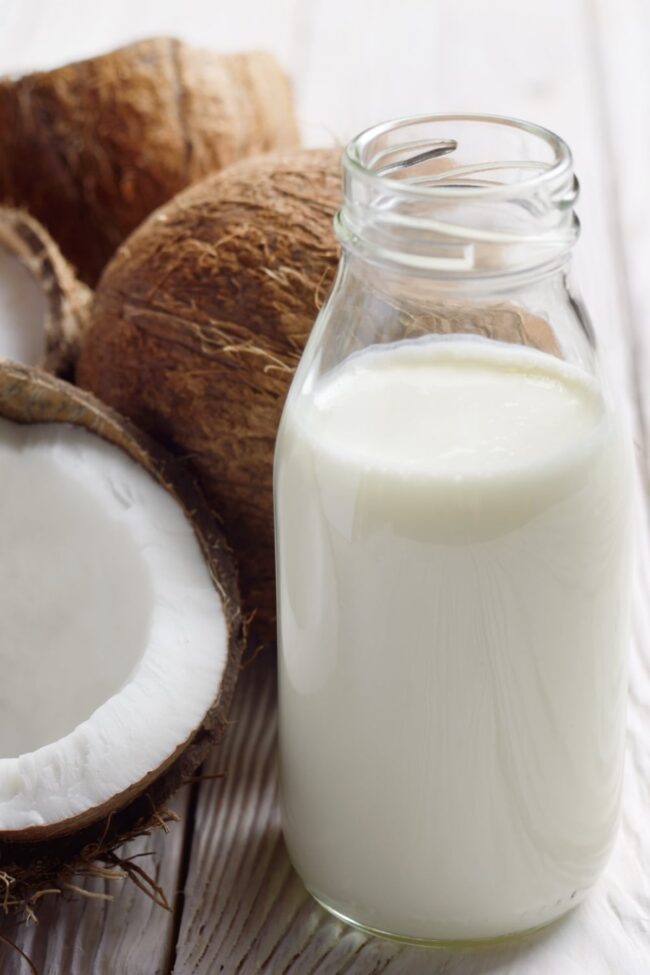8 Simple Dry Milk Alternatives You Can Use
Powdered milk replacements ensure the right level of creaminess in everything from baked goods to beverages.
Dairy-based and plant-derived options work well, depending on the texture and richness needed.
Some choices add extra depth, while others keep flavors subtle.
The ideal pick depends on whether the recipe requires bold dairy notes or a lighter alternative.
Why Replace Powdered Milk?
Substituting powdered milk opens up a range of exciting alternatives.
Many individuals find plant-based options like almond or soy milk powder to be great choices, offering distinct flavors and nutritional benefits.
Coconut milk powder is another intriguing option, adding a tropical twist to recipes while being dairy-free and rich in healthy fats.
Oat flour can also serve as an unexpected alternative due to its creamy texture when mixed with water, making it suitable for various dishes.
Whether you're experimenting with new ingredients or addressing dietary restrictions, discovering these substitutes can enhance your culinary adventures significantly.
Powdered Milk Substitutes Based on Types
Milk alternatives offer various options for those looking to replace powdered milk in recipes or beverages. Choices range from plant-based options to other dairy products, each bringing its own unique flavor and texture.
Plant-Based Substitutes
Exploring dairy-free choices opens up a wide range of plant-based substitutes.
For anyone with nut allergies, oat milk powder provides a mild and slightly sweet flavor, making it a smart selection.
Rice milk powder stands out as light and easy on the stomach, perfect for those with sensitivities.
Coconut milk powder introduces a rich texture along with its unique tropical taste that many find appealing.
Soy milk powder remains popular due to its affordability and similar nutrients compared to cow's milk.
Almond and cashew powders add delightful nutty flavors; almond offers subtle sweetness while cashew brings creaminess to dishes effortlessly.
Malted Milk Powder
A unique flavor shines through malted milk powder, which includes malted barley, sugar, and milk powder.
This ingredient adds a delightful aroma to dishes while maintaining a dairy base.
Recipes like baked goods and smoothies benefit from its distinctive taste, enhancing the overall experience.
Choosing this option can elevate meals with an exciting twist that sets them apart from ordinary flavors.
It serves as an interesting alternative in various culinary creations where sweetness meets malty goodness.
Discovering new ways to use it can lead to unexpected delights in the kitchen.
Dairy-Based Substitutes
A variety of dairy-based substitutes exist for those who do not need lactose-free options.
Rice powder combines rice with dairy, making it a wonderful choice in many recipes, particularly desserts.
Potato milk powder comes from potatoes and remains a friendly option for those with allergies while still being dairy-based.
Different powdered milk alternatives can meet any dietary needs or preferences without compromising taste.
Finding the right substitute can enhance favorite recipes and drinks, so trying out different options is encouraged.
The journey to discover the ideal fit can be both enjoyable and satisfying.
Specific Alternatives to Powdered Milk
There are several alternatives to powdered milk that can fit nicely into your everyday recipes. These options bring a reliable texture and flavor, letting you enjoy a fresh twist on your favorite dishes.
Regular Milk
Using regular milk serves as a great non-vegan option in various recipes.
For those who need an alternative, powdered milk can easily replace liquid milk.
This choice works particularly well in recipes that call for water to dissolve the powdered form.
A clear ratio exists for substituting the two: four cups of liquid milk equal one cup of powdered milk mixed with four cups of water.
In smaller amounts, two cups of liquid correspond to half a cup of dry powder plus two cups of water.
Similarly, one cup converts to a quarter cup dry and an additional cup water.
Soy Milk Powder
Health benefits of soy milk include its rich nutritional profile, featuring high levels of dietary fiber, manganese, and thiamin.
This plant-based drink contains no cholesterol and is low in saturated fat and sodium.
Available in plain or flavored varieties, soy milk can easily be found at grocery stores.
Adding it to recipes as a substitute for powdered milk requires using the same amount specified; mixing with warm or cold water is all that’s needed.
Some brands include added sugar and calcium but must be kept chilled to stay fresh.
Regular consumption may not suit everyone; allergies or digestive issues can occur for some individuals due to its low calcium content.
Potato Milk Powder
Potato milk powder serves as a valuable alternative for individuals with gluten or soy sensitivities.
This product can retain its natural potato flavor or come infused with various tastes.
Equal amounts of potato milk powder substitute powdered milk, making it straightforward to use in recipes.
It is crucial to check labels because some brands may contain soy ingredients.
A key advantage lies in its dairy-free composition, free from gluten, casein, cholesterol, and fat while providing vitamins A through K and essential minerals like calcium and iron.
Many other options exist for those seeking a milk powder replacement; evaporated milk, condensed milk varieties, almond milk powder, buttermilk powder along with skimmed options offer flexibility when choosing substitutes.
Coconut Milk and Powder
Coconut milk serves as a common ingredient in many South Asian dishes.
This creamy liquid can easily replace regular and powdered milk in various recipes, offering a rich flavor.
Coconut powder may not be readily available, yet coconut milk remains an excellent alternative for cooking and baking.
Making fresh coconut milk involves soaking grated coconut flesh, then squeezing and straining it to create the final product.
When stored in the fridge, separation occurs between the cream layer and water; this cream can later enhance other recipes or mix smoothly for standard uses.
For convenience, canned coconut products already feature these layers separated but still deliver great taste when needed as a substitute for powdered milk at equal proportions.
Rice Milk Powder
Rice milk powder serves as an excellent vegan choice, especially for those with dietary restrictions.
This product contains no soy, gluten, lactose, or dairy.
It can easily replace powdered milk in recipes by using the same amount.
A cup of rice milk powder offers around 120 calories and is free from cholesterol and saturated fats.
It also provides important nutrients such as calcium and vitamins B12 and D; some brands enhance these with additional iron and vitamins for even more health benefits.
Locating rice milk powder might be challenging; natural food stores or online retailers often carry it.
Nutritional Considerations
Finding a substitute for powdered milk can seem daunting, but several options exist right in your kitchen.
Nut-based milks, like almond or cashew milk, provide a creamy texture and are perfect for various recipes.
Oat milk offers a slightly sweet flavor that complements baked goods beautifully.
For those looking to avoid dairy altogether, coconut cream serves as an excellent alternative with its rich consistency and tropical hint.
Knowing these alternatives allows you to whip up delicious treats without missing out on flavor or nutrition when powdered milk is unavailable.



